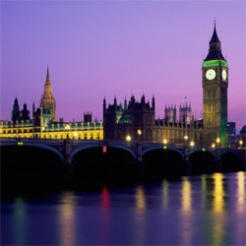VAT rates could be frozen for charities’ non-business activities if the Labour party can convince Parliament during the committee stage of the Finance Bill beginning tomorrow.
The Opposition will appeal to protect charities from an almost £150m hit which would result from the 2.5 per cent rise which gained MPs' approval on 7 July.
Shadow chief Treasury secretary Liam Byrne today published analysis collated by the Charity Tax Group (CTG) and Acevo highlighting a £143m hit for charities if the VAT rise goes ahead as planned.
“This is the government's first strike at the Big Society,” said Byrne. “The charities David Cameron says he wants to help him are now the first in line for a kicking. With the Comprehensive Spending Review, it’s bound to get worse.
“The very least the government should now do is give the Commons a plan for defending charities from the £150m hit to their bank accounts and services.”
The Labour amendments to the Bill call for all non-business activity to be protected from the rise, saving £60m-£75m as estimated by the CTG. The plans are limited to non-business activities, says Labour, due to the possibility that the European Commission may argue that anything above this could represent State Aid.
The debate, which could last up to five days in the House of Commons, could result in the delay of the VAT rise across the board by calling for a detailed impact assessment to be carried out before the Bill is passed.
A spokesman for Liam Byrne’s office said: "We have also tabled an amendment which seeks to delay the introduction of the increase in the standard rate of VAT until an impact assessment is laid before the Commons, relating to a range of issues and groups, including charities."
He added: "We want the Government to accept that charities will suffer from their plans and to take the necessary steps to put that right."
According to the CTG figures the VAT rise to 20 per cent would see Charity 250 Index organisation Action for Blind People paying out an extra £100,000 per year.
Labour MP Ian Lucas said that smaller charities would be forced to pass the increase onto vulnerable users:
“Vulnerable people who pay for services from charities will pay more. One example is Charriotts in Wrexham, which helps disabled people to travel. Because of its success, it is about to reach the threshold to register for VAT and its customers will now pay 20 per cent VAT. This indiscriminate rise hits everyone equally - regardless of need and the ability to pay."









